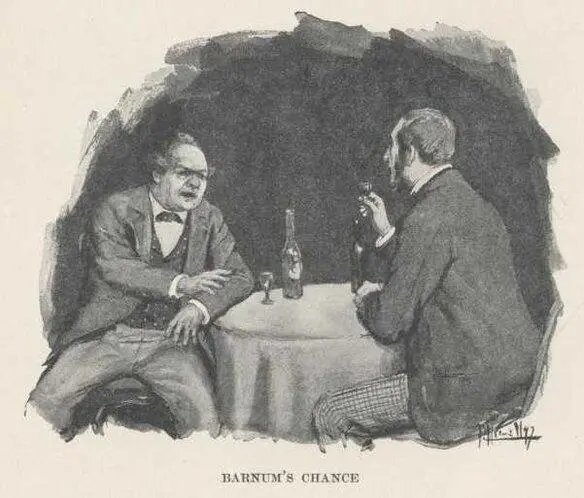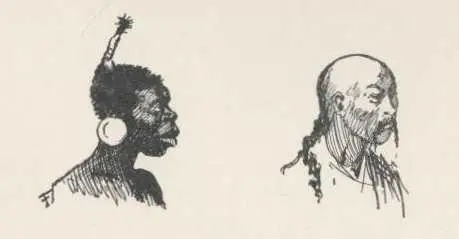Mark Twain - Following the Equator
Здесь есть возможность читать онлайн «Mark Twain - Following the Equator» весь текст электронной книги совершенно бесплатно (целиком полную версию без сокращений). В некоторых случаях можно слушать аудио, скачать через торрент в формате fb2 и присутствует краткое содержание. Год выпуска: 2004, Жанр: Классическая проза, Юмористическая проза, на английском языке. Описание произведения, (предисловие) а так же отзывы посетителей доступны на портале библиотеки ЛибКат.
- Название:Following the Equator
- Автор:
- Жанр:
- Год:2004
- ISBN:нет данных
- Рейтинг книги:3 / 5. Голосов: 1
-
Избранное:Добавить в избранное
- Отзывы:
-
Ваша оценка:
- 60
- 1
- 2
- 3
- 4
- 5
Following the Equator: краткое содержание, описание и аннотация
Предлагаем к чтению аннотацию, описание, краткое содержание или предисловие (зависит от того, что написал сам автор книги «Following the Equator»). Если вы не нашли необходимую информацию о книге — напишите в комментариях, мы постараемся отыскать её.
Following the Equator — читать онлайн бесплатно полную книгу (весь текст) целиком
Ниже представлен текст книги, разбитый по страницам. Система сохранения места последней прочитанной страницы, позволяет с удобством читать онлайн бесплатно книгу «Following the Equator», без необходимости каждый раз заново искать на чём Вы остановились. Поставьте закладку, и сможете в любой момент перейти на страницу, на которой закончили чтение.
Интервал:
Закладка:
"It's a first-rate idea. I'll buy the Monument."
Jamrach was speechless for a second. Then he said, like one ashamed "You caught me. I was napping. For a moment I thought you were in earnest."
Barnum said pleasantly—
"I was in earnest. I know they won't sell it, but no matter, I will not throw away a good idea for all that. All I want is a big advertisement. I will keep the thing in mind, and if nothing better turns up I will offer to buy it. That will answer every purpose. It will furnish me a couple of columns of gratis advertising in every English and American paper for a couple of months, and give my show the biggest boom a show ever had in this world."
Jamrach started to deliver a burst of admiration, but was interrupted by Barnum, who said:
"Here is a state of things! England ought to blush."
His eye had fallen upon something in the newspaper. He read it through to himself, then read it aloud. It said that the house that Shakespeare was born in at Stratford-on-Avon was falling gradually to ruin through neglect; that the room where the poet first saw the light was now serving as a butcher's shop; that all appeals to England to contribute money (the requisite sum stated) to buy and repair the house and place it in the care of salaried and trustworthy keepers had fallen resultless. Then Barnum said:
"There's my chance. Let Jumbo and the Monument alone for the present—they'll keep. I'll buy Shakespeare's house. I'll set it up in my Museum in New York and put a glass case around it and make a sacred thing of it; and you'll see all America flock there to worship; yes, and pilgrims from the whole earth; and I'll make them take their hats off, too. In America we know how to value anything that Shakespeare's touch has made holy. You'll see."

In conclusion the S. C. P. said:
"That is the way the thing came about. Barnum did buy Shakespeare's house. He paid the price asked, and received the properly attested documents of sale. Then there was an explosion, I can tell you. England rose! That, the birthplace of the master-genius of all the ages and all the climes—that priceless possession of Britain—to be carted out of the country like so much old lumber and set up for sixpenny desecration in a Yankee show-shop—the idea was not to be tolerated for a moment. England rose in her indignation; and Barnum was glad to relinquish his prize and offer apologies. However, he stood out for a compromise; he claimed a concession—England must let him have Jumbo. And England consented, but not cheerfully."
It shows how, by help of time, a story can grow—even after Barnum has had the first innings in the telling of it. Mr. Barnum told me the story himself, years ago. He said that the permission to buy Jumbo was not a concession; the purchase was made and the animal delivered before the public knew anything about it. Also, that the securing of Jumbo was all the advertisement he needed. It produced many columns of newspaper talk, free of cost, and he was satisfied. He said that if he had failed to get Jumbo he would have caused his notion of buying the Nelson Monument to be treacherously smuggled into print by some trusty friend, and after he had gotten a few hundred pages of gratuitous advertising out of it, he would have come out with a blundering, obtuse, but warm-hearted letter of apology, and in a postscript to it would have naively proposed to let the Monument go, and take Stonehenge in place of it at the same price.
It was his opinion that such a letter, written with well-simulated asinine innocence and gush would have gotten his ignorance and stupidity an amount of newspaper abuse worth six fortunes to him, and not purchasable for twice the money.
I knew Mr. Barnum well, and I placed every confidence in the account which he gave me of the Shakespeare birthplace episode. He said he found the house neglected and going-to decay, and he inquired into the matter and was told that many times earnest efforts had been made to raise money for its proper repair and preservation, but without success. He then proposed to buy it. The proposition was entertained, and a price named—$50,000, I think; but whatever it was, Barnum paid the money down, without remark, and the papers were drawn up and executed. He said that it had been his purpose to set up the house in his Museum, keep it in repair, protect it from name-scribblers and other desecrators, and leave it by bequest to the safe and perpetual guardianship of the Smithsonian Institute at Washington.
But as soon as it was found that Shakespeare's house had passed into foreign hands and was going to be carried across the ocean, England was stirred as no appeal from the custodians of the relic had ever stirred England before, and protests came flowing in—and money, too, to stop the outrage. Offers of repurchase were made—offers of double the money that Mr. Barnum had paid for the house. He handed the house back, but took only the sum which it had cost him—but on the condition that an endowment sufficient for the future safeguarding and maintenance of the sacred relic should be raised. This condition was fulfilled.
That was Barnum's account of the episode; and to the end of his days he claimed with pride and satisfaction that not England, but America—represented by him—saved the birthplace of Shakespeare from destruction.
At 3 P.M., May 6th, the ship slowed down, off the land, and thoughtfully and cautiously picked her way into the snug harbor of Durban, South Africa.

CHAPTER LXV.
In statesmanship get the formalities right, never mind about the moralities.
—Pudd'nhead Wilson's New Calendar.
Royal Hotel Durban—Bells that Did not Ring—Early Inquiries for Comforts—Change of Temperature after Sunset—Rickhaws—The Hotel Chameleon—Natives not out after the Bell—Preponderance of Blacks in Natal—Hair Fashions in Natal—Zulus for Police—A Drive round the Berea—The Cactus and other Trees—Religion a Vital Matter—Peculiar Views about Babies—Zulu Kings—A Trappist Monastery—Transvaal Politics—Reasons why the Trouble came About
FROM DIARY:
Royal Hotel. Comfortable, good table, good service of natives and Madrasis. Curious jumble of modern and ancient city and village, primitiveness and the other thing. Electric bells, but they don't ring. Asked why they didn't, the watchman in the office said he thought they must be out of order; he thought so because some of them rang, but most of them didn't. Wouldn't it be a good idea to put them in order? He hesitated—like one who isn't quite sure—then conceded the point.
May 7. A bang on the door at 6. Did I want my boots cleaned? Fifteen minutes later another bang. Did we want coffee? Fifteen later, bang again, my wife's bath ready; 15 later, my bath ready. Two other bangs; I forget what they were about. Then lots of shouting back and forth, among the servants just as in an Indian hotel.
Evening. At 4 P.M. it was unpleasantly warm. Half-hour after sunset one needed a spring overcoat; by 8 a winter one.
Durban is a neat and clean town. One notices that without having his attention called to it.
Rickshaws drawn by splendidly built black Zulus, so overflowing with strength, seemingly, that it is a pleasure, not a pain, to see them snatch a rickshaw along. They smile and laugh and show their teeth—a good-natured lot. Not allowed to drink; 2s per hour for one person; 3s for two; 3d for a course—one person.
Читать дальшеИнтервал:
Закладка:
Похожие книги на «Following the Equator»
Представляем Вашему вниманию похожие книги на «Following the Equator» списком для выбора. Мы отобрали схожую по названию и смыслу литературу в надежде предоставить читателям больше вариантов отыскать новые, интересные, ещё непрочитанные произведения.
Обсуждение, отзывы о книге «Following the Equator» и просто собственные мнения читателей. Оставьте ваши комментарии, напишите, что Вы думаете о произведении, его смысле или главных героях. Укажите что конкретно понравилось, а что нет, и почему Вы так считаете.











